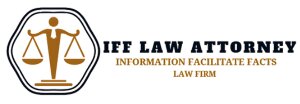Best Landlord & Tenant Lawyers in Chennai
Share your needs with us, get contacted by law firms.
Free. Takes 2 min.
Free Guide to Hiring a Real Estate Lawyer
List of the best lawyers in Chennai, India
About Landlord & Tenant Law in Chennai, India
Landlord & Tenant laws in Chennai, India govern the rights and responsibilities of both landlords and tenants in rental agreements. These laws cover various aspects such as rent, eviction procedures, maintenance of the property, security deposits, and more.
Why You May Need a Lawyer
There are several situations where you may need a lawyer specializing in Landlord & Tenant law in Chennai. Some common scenarios include disputes over rent payments, lease agreements, property damage, eviction proceedings, or security deposit issues. A lawyer can provide guidance and representation to protect your rights and navigate the legal process.
Local Laws Overview
In Chennai, the Tamil Nadu Buildings (Lease and Rent Control) Act, 1960, governs the relationship between landlords and tenants. This Act regulates rent control, eviction procedures, maintenance of the premises, and other aspects of tenancy agreements. It is essential to be familiar with these laws to ensure compliance and protect your interests.
Frequently Asked Questions
1. What are the rights and responsibilities of landlords and tenants in Chennai?
The rights and responsibilities of landlords and tenants in Chennai are governed by the Tamil Nadu Buildings (Lease and Rent Control) Act, 1960. Landlords have the right to receive rent on time, maintain the property in good condition, and evict tenants for valid reasons. Tenants have the right to peaceful enjoyment of the premises, timely repairs, and protection against eviction without cause.
2. Can a landlord evict a tenant without proper notice in Chennai?
No, a landlord cannot evict a tenant without following the proper legal procedures specified in the Tamil Nadu Buildings (Lease and Rent Control) Act, 1960. The Act mandates that landlords provide a written notice to the tenant before initiating eviction proceedings for valid reasons such as non-payment of rent or breach of lease terms.
3. How can a tenant dispute a rent increase in Chennai?
If a tenant believes that a rent increase is unjustified or unreasonable, they can dispute it by filing a petition with the Rent Control Court in Chennai. The court will review the case and determine whether the rent increase is valid based on the provisions of the Tamil Nadu Buildings (Lease and Rent Control) Act, 1960.
4. Is it legal for landlords to withhold a tenant's security deposit in Chennai?
Landlords in Chennai are allowed to withhold a tenant's security deposit for legitimate reasons such as unpaid rent, damage to the property beyond normal wear and tear, or breach of lease terms. However, landlords must provide an itemized list of deductions and return the remaining deposit to the tenant within a specified time frame as per the Act.
5. Can a tenant sublet a rental property in Chennai?
Subletting a rental property in Chennai is subject to the terms of the lease agreement between the landlord and tenant. In most cases, tenants are required to obtain written consent from the landlord before subletting the property to another individual. Failure to do so may result in eviction or legal action by the landlord.
6. What are the procedures for resolving disputes between landlords and tenants in Chennai?
Disputes between landlords and tenants in Chennai can be resolved through negotiation, mediation, or legal proceedings. If both parties are unable to reach a mutual agreement, they can file a petition with the Rent Control Court to seek resolution. The court will review the case and make a decision based on the evidence presented.
7. Can a landlord enter a rental property without the tenant's permission in Chennai?
Landlords in Chennai are required to provide reasonable notice to tenants before entering the rental property for inspections, repairs, or other legitimate purposes. Unless there is an emergency situation, landlords must respect the tenant's right to privacy and obtain consent before entering the premises.
8. How can a tenant terminate a lease agreement early in Chennai?
If a tenant wishes to terminate a lease agreement early in Chennai, they must review the terms of the lease agreement for any provisions related to early termination. Alternatively, the tenant can negotiate with the landlord to reach a mutual agreement on the termination of the lease. In some cases, tenants may be required to provide notice and pay a penalty for early termination.
9. Are there any rent control laws in Chennai that limit rent increases?
Yes, the Tamil Nadu Buildings (Lease and Rent Control) Act, 1960, imposes certain restrictions on rent increases in Chennai to prevent landlords from charging exorbitant rents. The Act governs rent control measures, rental agreements, and procedures for resolving rent-related disputes between landlords and tenants.
10. How can I find a reputable lawyer specializing in Landlord & Tenant law in Chennai?
You can find a reputable lawyer specializing in Landlord & Tenant law in Chennai by seeking recommendations from friends, family, or colleagues who have used legal services in the past. Additionally, you can research online directories, legal associations, or consult with the Bar Council of Tamil Nadu for a list of qualified lawyers in the area.
Additional Resources
For more information and assistance on Landlord & Tenant issues in Chennai, you can contact the Rent Control Court, Chennai Metropolitan Development Authority (CMDA), or the Tamil Nadu State Rent Control Authority. These governmental bodies can provide guidance, resources, and support for individuals dealing with rental disputes or legal issues.
Next Steps
If you require legal assistance in dealing with Landlord & Tenant matters in Chennai, it is advisable to consult with a qualified lawyer who specializes in this area of law. A lawyer can help protect your rights, provide legal advice, and represent your interests in negotiations or court proceedings. Remember to review your lease agreement, understand your rights and responsibilities, and seek timely legal assistance to address any concerns or disputes effectively.
Lawzana helps you find the best lawyers and law firms in Chennai through a curated and pre-screened list of qualified legal professionals. Our platform offers rankings and detailed profiles of attorneys and law firms, allowing you to compare based on practice areas, including Landlord & Tenant, experience, and client feedback.
Each profile includes a description of the firm's areas of practice, client reviews, team members and partners, year of establishment, spoken languages, office locations, contact information, social media presence, and any published articles or resources. Most firms on our platform speak English and are experienced in both local and international legal matters.
Get a quote from top-rated law firms in Chennai, India — quickly, securely, and without unnecessary hassle.
Disclaimer:
The information provided on this page is for general informational purposes only and does not constitute legal advice. While we strive to ensure the accuracy and relevance of the content, legal information may change over time, and interpretations of the law can vary. You should always consult with a qualified legal professional for advice specific to your situation.
We disclaim all liability for actions taken or not taken based on the content of this page. If you believe any information is incorrect or outdated, please contact us, and we will review and update it where appropriate.









